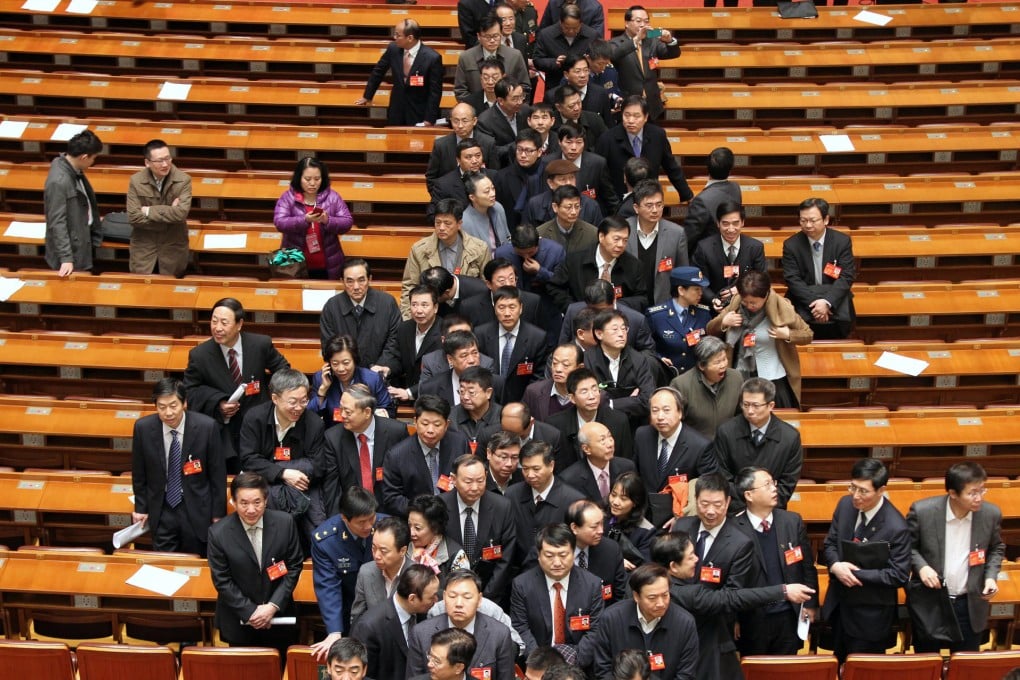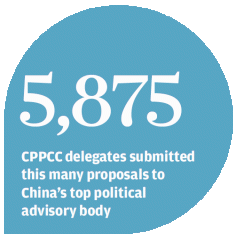Pollution a greater concern for delegates to annual CPPCC session
The National Committee of the Chinese People's Political Consultative Conference (CPPCC) concluded its annual plenum in Beijing yesterday. The 10-day meeting saw members submit 5,875 proposals, of which 4,982 were formally accepted, the committee said.

Pollution has become a much greater concern for delegates to China's top political advisory body, judging by proposals submitted at this year's session.

Of those, 596 proposals, more than one-tenth of the total, listed pollution as a top concern. Besides calling for greater efforts in the fight against the contamination of air, soil and underground water, delegates urged authorities to beef up environmental protection in rural areas.
On Sunday, NPC chairman Zhang Dejiang vowed to push forward legislation to combat pollution while delivering his annual work report to delegates. His views echoed remarks by Premier Li Keqiang at the opening the congress a week earlier.
Zhang, who ranks third in the all-powerful Politburo Standing Committee, said stopping pollution would be one of the top priorities to be addressed this year by the NPC. He said pollution would be tackled through legislation and oversight as public dissatisfaction with environmental degradation intensified.
Livelihood issues also featured heavily, attracting 1,484 proposals. The proposals called for measures ranging from greater vocational education in minority areas to support for the development of private colleges and universities.
They also called for more resources to be allocated to rural areas to develop the rural medical system and to fast-track a unified urban-rural medical insurance system.